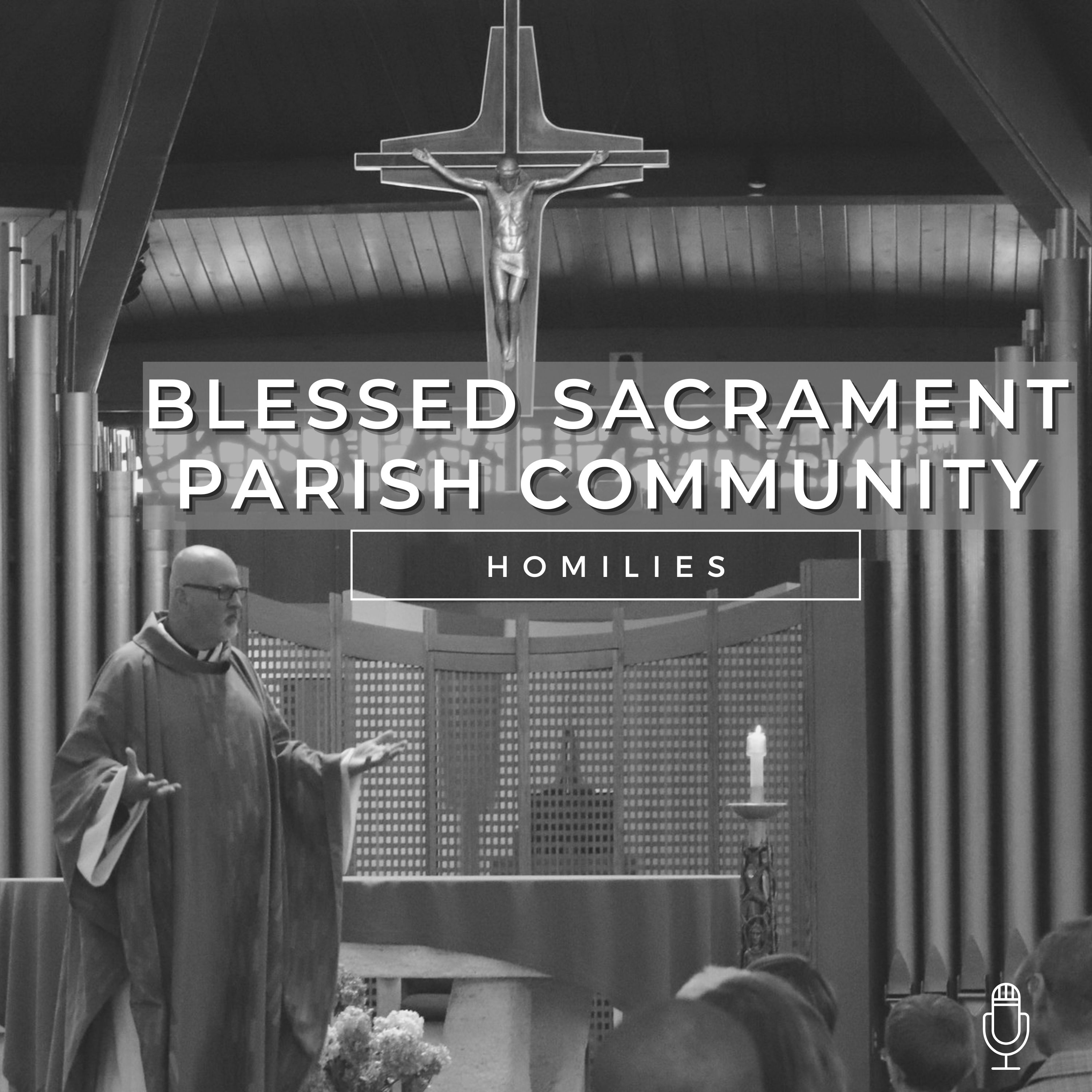Episode Transcript
[00:00:12] Speaker A: Welcome to the Blessed Sacrament Homilies podcast, where our mission is to help everyone recognize and experience the presence of God. We hope you are nourished and encouraged by the Word. Thank you for joining us.
[00:00:26] Speaker B: The Lord be with you and with your spirit. A reading from the Holy Gospel according to Luke.
[00:00:32] Speaker A: Glory to you, O Lord.
[00:00:33] Speaker B: As Jesus continued his journey to Jerusalem, he traveled through Samaria and Galilee.
As he was entering a village, 10 lepers met him.
They stood at a distance from him and raised their voices, saying, jesus, master, have pity on us.
When he saw them, he said, go, show yourselves to the priests.
As they were going, they were cleansed.
And one of them, realizing he had been healed, returned, glorifying God in a loud voice.
And he fell at the feet of Jesus and thanked him.
He was a Samaritan.
Jesus said in reply, 10 were cleansed, were they not?
Where are the other 9?
Has none but this foreigner returned to give thanks to God?
Then he said to him, stand up and go.
Your faith has saved you. The Gospel of the Lord.
[00:01:42] Speaker A: Praise to you, Lord Jesus Christ.
[00:01:45] Speaker B: Virtually every part of our gospels have multiple layers that speak to us at different times and in different circumstances during our lives.
And this particular gospel is immensely rich in those layers, because as we break them open, we can see things that can bring us strength, that can give us hope, and that can call on us to look at things in ways we haven't looked at them before.
And in our world today in particular, there is, and I think most of us would admit to this truth, an anxiety level that I haven't seen in my lifetime where we are on edge, we're not quite sure what the future might bring.
And this gospel gives us a way to cope with that. And I'm going to end with that part of the story.
But the other part of the story is equally important for us because it calls on us to do some soul searching.
If you notice, after the healing of the lepers, the instruction that Jesus gives is, go and show yourselves to the priests.
And what that should bring to our mind is he told them to go to the religious leaders and share what has happened.
Because the religious leaders, the strict followers of the law, saw themselves as the ultimate authority, the priests.
So that one hits home for me, because even though the priesthood of ancient Israel is different than our priesthood, there are some similarities.
And it can become easy to think that we are the ones that lead all people to God, rather than God being the one that changes hearts and minds.
And that's a good thing for me to remember the second Part of the story that we should look to is that Jesus goes out of his way to having as an example the Samaritan.
And Samaritans would have been the outsiders in virtually everything.
They would have been seen as a people that was easy to dismiss, easy to forget about, easy to ignore.
Yet Jesus holds up the Samaritan as the one that has a deep and profound faith that leads to gratitude.
The other part, which is parallel to that, is that people that had leprosy were seen as a people being punished for some type of sin in their life, be it theirs or even their parents sin.
And Jesus doesn't dismiss them. He doesn't turn, tell them, back off, stay away, you're unclean.
He loved them, and he brought them healing.
Now here's that last part, which is a critical lesson for us today.
Ten people were healed.
One of them showed gratitude.
And I would wager everything I have that for the nine of them who experience real healing, it ended with that. They moved on with their lives. They didn't worry about it anymore. They didn't worry about God anymore. They got what they were looking for.
They received grace.
But the tenth one recognized that he received grace, was grateful for that grace, and it changed his life because he could recognize that God's presence was always going to be there for him, to give him whatever he needed.
And my guess is there was never a time where the stress and anxiety in his life was too much to bear after that, because he was able to remember and be grateful for God's love in his life.
That's what we can learn from this, because each one of us, in different ways and at different times, receives God's grace in abundance.
And our response should always be one of gratitude, remembering that these gifts are given to us without counting cost.
And if we allow ourselves to have that gratitude, then the experience of grace we get doesn't just end with that, it changes our lives, because we recognize that God's always there, never leaves us, always gives us what we need, and that's a good thing for all of us to remember.


